Caring For Your Fresh water System
Caring for your fresh water system in your RV or tiny house isn’t hard. It just takes a little forethought and a few basic filters.
Water system in aging RV parks and campgrounds can be full of contaminants, and should never be trusted. Contaminates will include rust and corrosion at the very least, and could include E-Coli.
“Campers lacking water filtration systems are playing Russian-roulette each time they connect to a campground water supply.” source
Many campgrounds have their own wells with no decontamination equipment. Heavy metals, pesticides, and herbicides are common infiltrates. Neurotoxins like cyanobacteria from fungus and algae blooms is common.
Municipal water systems are highly regulated and quite safe. Early on I was warned never to put campground water into my RV’s system. I’ve always adhered to that. We fill our fresh water tank at home. If we run short, we fill a thermos with campground water and set it on the counter. But full-timers and long-term campers don’t always have the luxury. Plus, you really need your water system operational if you use the potty, shower, or laundry in your RV or tiny home.
A Surprising Contaminant
The only time I ran into trouble was using antifreeze in the fresh water system during the winterizing process. Many folks swear by the antifreeze method of winterizing your water system, but my experience was nasty. My entire water system fill with algae. See the full story on this page: How I Winterize My RV
Algae can cause low water pressure
Algae blooms can clog your water lines and cause confusing low water pressure to just one faucet. If you can, remove the aerator from the end of the faucet and make sure it’s clean. I suggest removing the aerators before running the cleaner through so the algae that flushes out can exit the faucet freely.
Algae is very common RV water system contaminant
The smell is often described as similar to the stench of rotten eggs. It’s quite common in RV fresh water system, especially if you don’t drain down your system after each camping trip. Algae is frequently noticed with the hot water system. The water left in the water heater is a perfect environment for an algae bloom. The algae can get so thick it frequently clogs the lines and reduces the water pressure.
Camco TastePURE Spring Fresh cleans and deodorizes your RV fresh water systems with a safe formula. Dewinterizes any fresh water tank or line. Also good for periodic cleaning, freshening, and deodorizing. Their one-step, no-measure solution requires no mixing or preparation. 1 gallon of solution cleans up to a 100 gallon tank.
It contains Ethyl Alcohol 64-17-5 < 5% and Sorbitan Monooleate Ethoxylate 9005-65-6 < 1% and must be rinsed out thoroughly after use.
Another great fresh tank cleaner is Purogene
Purogene is a 2% solution of chlorine dioxide, ClO2 (contains no free chlorine). Chlorine dioxide is recognized safe for drinking water treatment for more than 50 years. It is EPA registered for use in drinking water. Purogene is much superior to bleach in that it not only kills bacteria, algae, cysts and viruses, but it also removes biofilms that attach to your tank and the inside of your plumbing.
Add to the fresh water tank and run your pump to send it thru the RV fresh water system. Open a hot water faucet until water comes out so you fill your hot water tank too. Let it sit for at least an hour, then flush the system. You can add a little to your tank each time you fill to preserve the freshness. This is used by most municipal water systems.
Purogene is great to use to stabilize your water if you don’t want to drain it between trips.
Use a small hands-free funnel like this to pour cleaners into RV fresh water tank 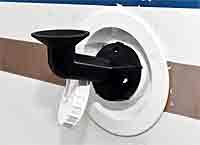
Pour freshwater tank cleaners safely and cleanly into RV fresh water tank inlet with this hands-free funnel. $14.50* thru eBay. Click on image to see details.
Preventing Contaminants From Entering Your Freshwater system
The best way to protect your fresh water system is to block contaminants from entering in the first place.
Fill your RV freshwater holding tank with a safe hose
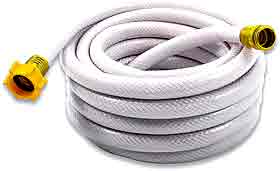
Always use a carcinogen free hose to fill your water tank. Never use a basic garden hose, because the chemical used to keep it flexible is a known carcinogen. Never use the same hose you’ve use to flush your black water tank.
I’ve seen the memes boasting about drinking from a regular garden hose and being just fine. It might be true. Small exposures may not harm you or cause cancers immediately, but it can possibly cause cancer over time. BPA and Phthalate are known carcinogens. Just sayin’.
Always Use A Filter
A filter on your incoming water line is your first line of defense.
Camco’s TastePURE RV/Marine Water Filter with Flexible Hose Protector reduces bad taste, odor, chlorine and sediment in drinking water with a 20 micron sediment filter. Also features GAC (Granular Activated Carbon) filtration in combination with KDF to prevent undesirable bacteria growth when the filter is not is use. Durable in-line, exterior mount filter has a wide body for increased flow. Includes a flexible hose protector to reduce strain on the connections while minimizing kinking that could impede water flow.
Replace the water heater anode rod
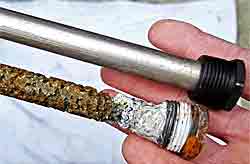 Suburban brand water heaters have an anode rod. It’s designed to protect a steel tank from corrosion. Atwood/Dometic water heaters do not require an anode rod as they have aluminum tanks.
Suburban brand water heaters have an anode rod. It’s designed to protect a steel tank from corrosion. Atwood/Dometic water heaters do not require an anode rod as they have aluminum tanks.
Anode rods attract and isolate harmful water deposits. Preserve the life of your Suburban water heater tank in your RV, camper, or motorhome by changing out that worn-out anode rod with a high quality Anode Rods. High quality anode rods are constructed from magnesium, which is a softer material than aluminum and keeps your tank from getting attacked by harmful water contaminants.
Other pages and blog posts that may interest you:
Collecting Rainwater A lot more on filtering your drinking water in this post.
How to Drain and Maintain Your RV Holding Tanks


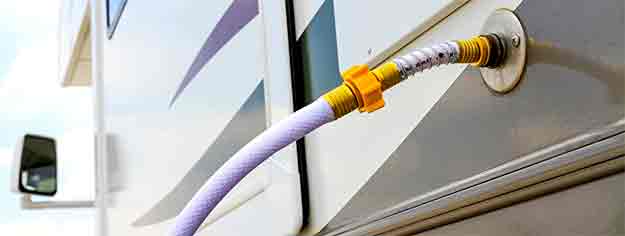
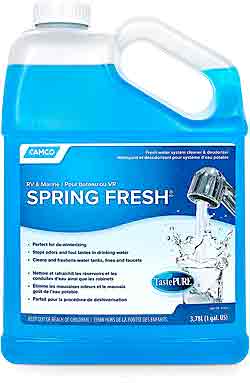
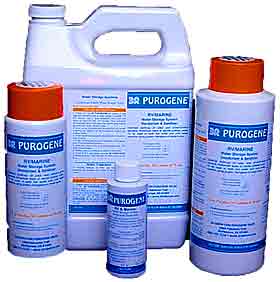
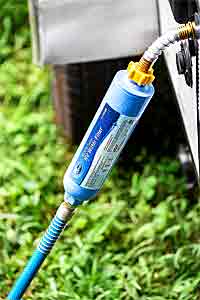

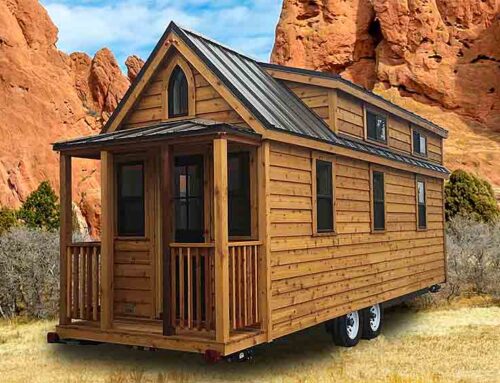
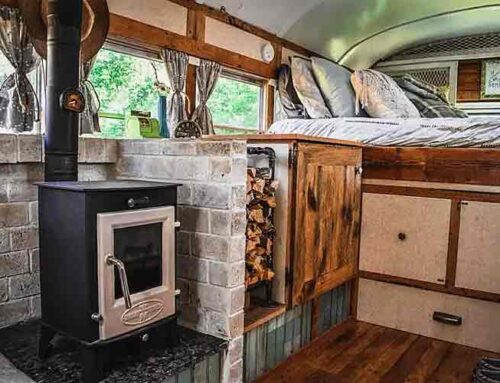

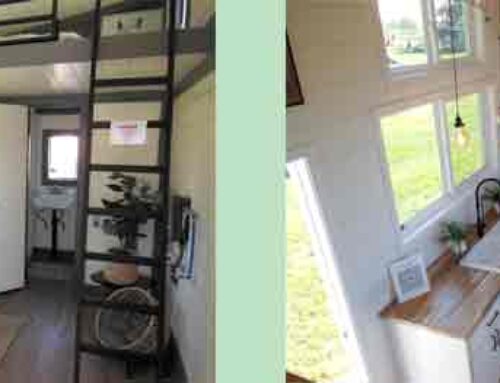
Leave A Comment